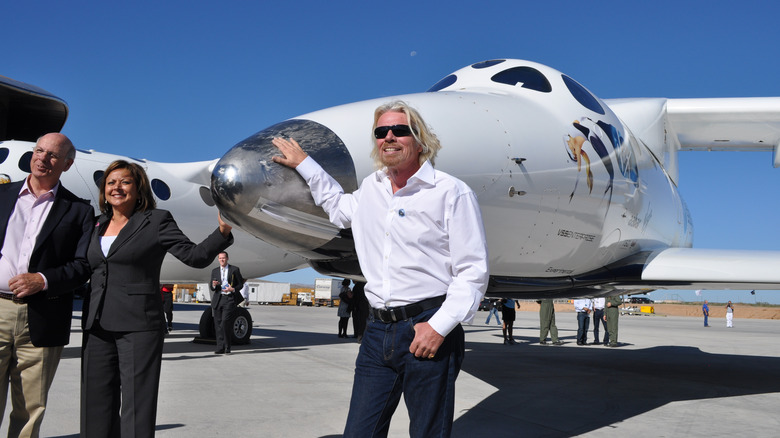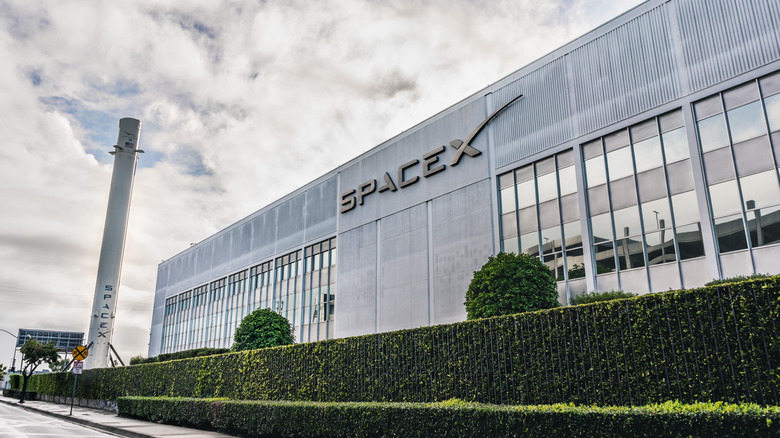Why Congress Is Making Commercial Space Travel Companies Nervous
April 12, 1961 marked humanity's very first manned flight into space. Yuri Gagarin was the man in question, and ever since his historic voyage, space has largely remained the exclusive domain of a select few: Hardened professionals, who have endured protracted periods of testing and training (which can take as much as two years, according to NASA). We're now in the grip of an age, however, where commercial space flights are becoming more and more prominent.
Virgin Galactic's most recent commercial flight, Galactic 01, was the first to make such a debut, with the six people aboard VSS Unity on June 29 paving the way for something more ambitious still: A flight to space for civilians, which Virgin Galactic has scheduled to embark on in August 2023.
Commercial spaceflight, of course, despite its potential dangers, has the potential to be absurdly lucrative for companies that can provide it. That August expedition reportedly costs $450,000 per ticket. With the myriad safety concerns that are involved as the public start to venture into space, however, Congress saw fit to take steps to ensure that such ventures didn't advance too far too soon.
What was decided by congress in 2004?
2004's Commercial Space Launch Amendments Act, congress.gov notes, acknowledged that "private industry has begun to develop commercial launch vehicles capable of carrying human beings into space." As tremendous a step for human achievement as this represented, the act also stated that this meant only one thing: "The future of the commercial human space flight industry will depend on its ability to continually improve its safety performance."
Safety regulations, in their many forms, govern many different aspects of our lives, from the number of hours we work to the sites we visit and the foods we are served. The difficulty is essentially establishing what's safe and what isn't, particularly in a rapidly-expanding and complex field such as commercial space flight. As these rules are often only practically defined by experience, the act also included a moratorium on establishing such a framework until 2012.
This moratorium was first extended until October 2015. In April of that year, Space News reported, XCOR Aerospace Chairman Jeff Greason stated, "We don't want to start regulating based on the shape of the industry today in a fashion that prevents it from evolving."
Ultimately, the moratorium was extended further, to September of 2023. At the time of writing, it's unclear whether there will be time for Congress to extend it yet again before it runs out. If it does, regulations will need to be set down and enforced, and that's a huge potential problem.
What could regulations on commercial space travel mean?
The Center For Space Policy And Strategy's "Emerging Issues In New Space Services: Technology, Law, And Regulatory Oversight," from Josef S. Koller et al, was created as part of the company's 2021 Space Agenda. It addressed the issue of conventional astronaut flights and "space tourism," and the difference between the two. Primarily, the idea that, "with the latter set to become more commonplace, spacecraft must be adapted for participants who do not meet the physical qualifications of a professional astronaut."
Without sufficient information from many such flights, it's tough to define the shape that a series of meticulous regulations should take. By the same token, prematurely forcing such regulations could be very detrimental to the development of the industry.
The issue is a multi-faceted one. The safety of civilian astronauts must be assured. In February 2021, CNET reported that SpaceX's Starship SN 8's flight took place in defiance of the Federal Aviation Commission, which had refused its request for what the FAA reportedly deemed "a waiver to exceed the maximum public risk allowed by federal safety regulations."
Companies such as SpaceX may fear that enforcement of such regulations would slow their work. There's also an element that the lack of such may mean that trust, and therefore precious resources and opportunities (not just the huge cost of those tickets), may not be afforded to them. Either way, it's clear that Congress has a big decision to make.


